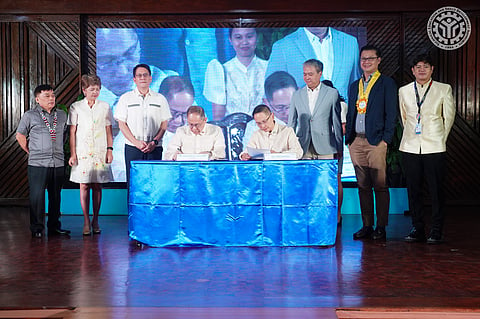
- NEWS
- the EDIT
- COMMENTARY
- BUSINESS
- LIFE
- SHOW
- ACTION
- GLOBAL GOALS
- SNAPS
- DYARYO TIRADA
- MORE

The Department of Labor and Employment (DOLE) and the Technical Education and Skills Development Authority (TESDA) have formalized the implementing rules and regulations (IRR) of Republic Act No. 12063, also known as the EBET Framework Act. The initiative aims to enhance skills training, improve employability, and bridge the gap between education and industry.
DOLE Secretary Bienvenido Laguesma and TESDA Director General Kiko Benitez signed the IRR, outlining the guidelines for implementing the law. The EBET Framework Act strengthens collaboration among TESDA, enterprises, and technical-vocational education and training (TVET) institutions to equip the workforce with skills aligned with industry demands.
Laguesma commended TESDA, led by Benitez and its board, for the timely development of the IRR and recognized both Houses of Congress for supporting the initiative for Filipino workers.
“The prompt issuance of this IRR underscores the urgency and demonstrates the commitment of the Executive branch to work closely with the Legislature in realizing the objectives of the law to provide Filipino workers every opportunity to gain new skills and competencies to meet the demands of the labor market for a well-trained and adaptable workforce,” Laguesma said.
Benitez described the EBET Framework Act as a landmark law that ensures the workforce remains competitive in an evolving job market.
“This IRR, crafted by TESDA and stakeholders in a judicious process, carves the path for the Filipino worker to upskill and reskill towards gainful careers,” he noted.
Signed into law by President Ferdinand R. Marcos Jr. in November 2024, the EBET Framework Act expands enterprise-based training opportunities, encourages industry participation in curriculum development, and enhances on-the-job training and apprenticeship programs.
The law aligns with the government’s job creation agenda under the Philippine Development Plan and the Philippine Labor and Employment Plan 2023-2028.
